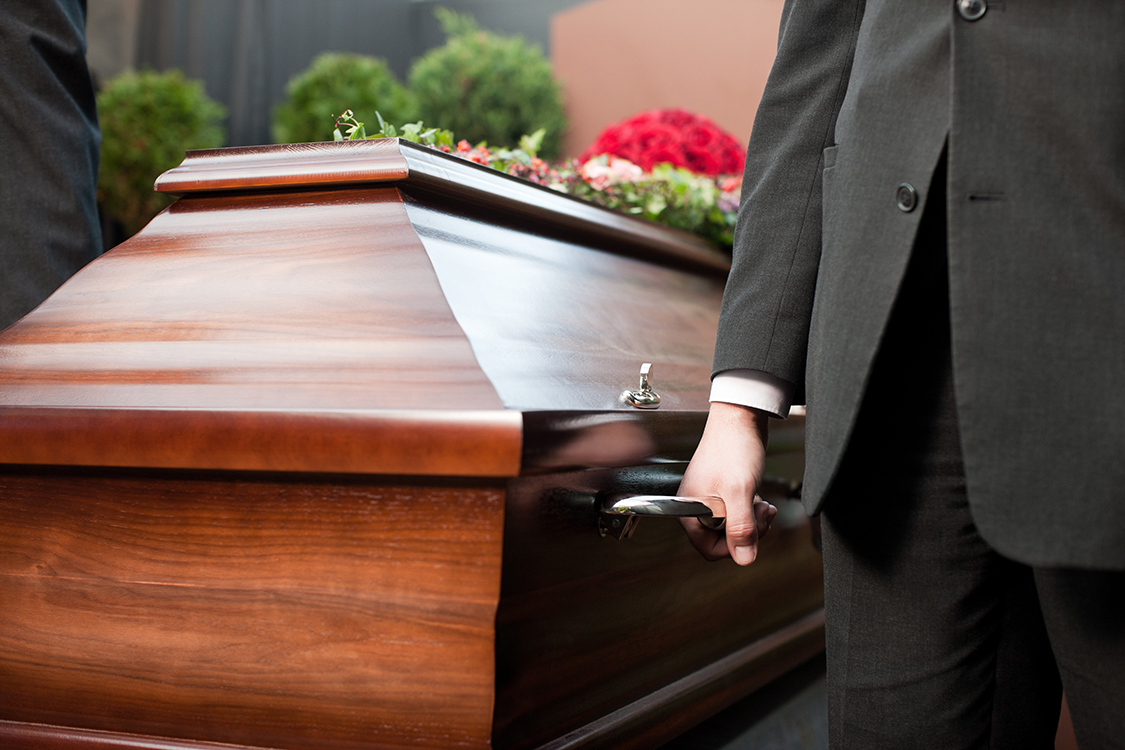
Most churches are well equipped to help families when they experience expected, chronologically correct deaths.
When Grandma Jones, age eighty-eight, “goes to be with Jesus,” certain protocols automatically spring into place. The pastor meets with the family, the prearranged funeral arrangements are utilized, and the obituary the family has been working on for a while is finalized.
Sadness is certainly a part of the picture, for Mrs. Jones’s departure hurts everyone who knew her. She was a vital part of the family and the church, so her funeral is well planned as a tribute to her and an opportunity to present the gospel.
Post-funeral situations are well orchestrated—the meal, the committal, and all that goes with them.
And with that, everyone returns to normal. While the family greatly misses their loved one, no one is in shock. No one is left to wonder what in the world to do next. No one faces sleepless nights with nobody to turn to for help. No children need counseling. No parents need continual care to deal with grief.
The church has done what it should do, and it has done it well. Training has kicked into gear, and all needs are cared for in a death that was expected.
However, there are rare but extremely important situations when the church is called on to handle a death that no one saw coming. Perhaps it is a child who drowns, a teen who dies in an accident, a young mom who succumbs in childbirth, or a middle-aged person who falls to a disease. In each of these situations, those concepts that never crept up in Grandma Jones’s death are now in play.
People are in shock.
Families don’t know what to do next.
Men, women, and children face sleepless, tear-filled nights.
Counseling is needed.
Parents grieve in ways that sometimes rip their families apart.
So, what can the church do when out-of-order deaths visit the family of God?My wife, Sue, and I know about this all too well.
On a beautiful, warm spring evening in 2002, death visited our family in the most unexpected way. Our teenage daughter was killed in a car accident on the way home from a cottage on Lake Michigan. She had been at an end-of-school party there with her close friends from her Christian high school. A simple driving error by her boyfriend cost Melissa her life and began our saga of sadness.
From our experience, I would like to provide some suggestions for churches to help them know what to do when this kind of thing happens. Our church did some of these things and failed to provide help in other areas. We really can’t fault our faithful church, for there were some needs they had never thought to meet, simply because these kinds of situations are so rare.
Yet my plea is for churches to be prepared anyway—even if you never need to jump into action in an unexpected death.
- Be there. Immediately.
Shortly after we got the initial word about Melissa’s death, church friends filled our living room. We didn’t care what they said, we just needed someone to be there. Melissa died in a county adjacent to ours, and her body was in a hospital in another town. When I said, “I need to go see Melissa,” immediately a caravan of friends took off with me so I could be with my little girl. They waited with me, kindly stepped aside when I went in to see her body, and simply supported me. Many of our friends stayed until the middle of the night with us—just to make sure we were as “okay” as we could be. - Be prepared. Pastors needed!
Our visitation pastor also showed up right away, and he was just the person I needed. I remember sitting down at the table amid my tears and saying, “Pastor Van, I don’t know what to do.” That was all he needed. He stepped in and made initial phone calls to the funeral home and got things rolling. He knew what needed to be done immediately—things I would not have had a clue about. - Organize people.
When such a surprise tragedy occurs, everyone wants to help. But the family should not have to be responsible for organizing who is bringing in the lasagna and who wants to take one of the children out for a meal. Families in chronologically correct death situations can usually handle these details. However, when your whole world has just come crashing down around you because your beautiful daughter has died, you don’t want to answer the door and figure out meals and get the mail and pay the bills. Perhaps a church can put together an ad hoc group at this time to relieve the family of having to deal with anything but grieving. - Realize this is long-term.
My wife and I stood at the funeral home for ten straight hours receiving friends and family. And then the church was packed for the funeral. All of those people buoyed me up in my sorrow and helped me make it through those horrible two days. But then the next day comes. Everyone goes back to school, to work. No, they haven’t forgotten, but they carry on. Life, inexplicably, goes on. Grieving is very, very difficult, tiring, and depressing, and it is long-term in these situations. People need to continue sending cards. Pastors need to continue to call and visit. As long as it takes. And it may take years. The church must decide it is in it for the long haul. Grieving parents or others in these situations don’t ever just “get over it.” Don’t forget them. - Develop a plan.
This is where it felt to us as if there was little support. Again, I’m not criticizing. This was new for everyone. But my suggestion for churches is that they become proactive about these things. Hoping never to use their plans, pastors and other leaders should study grieving and prepare a protocol for families who face out-of-order deaths. Perhaps send a pastor or an elder to GriefShare to get a feel for what is needed. Read up on it. Have a training session for elders and deacons. And then assign someone to create a plan that might incorporate the following: - Husband-wife counseling or suggestions for counseling: Many, many parents who lose a child split up over it. Notably, men and women will probably grieve very differently, and they need help in dealing with that. Mothers have had their hearts ripped out by this loss, and they may need professional help. What better role can the church play than to be a mom’s advocate?
- Helping the other children: Our son was negatively affected in an extreme way by Melissa’s death. He suddenly was the only child (two older sisters had graduated from college), and he was living with two grieving parents. We needed a youth pastor who would surround him with love, who would research what to do to help, who would be his advocate, who could coach him through his anger, or again, suggest effective professional assistance. Please understand. I am not blaming the church for my son’s difficulties related to losing Melissa, but I am saying they didn’t step into the breach when he needed help the most. So, church, get prepared for these hard situations.
I am more attuned to this than ever, and I do notice whenever a young person dies in our area. I have met with a few fathers to see if I can help. But I think the entity that can provide the most help when these things darken our neighbors’ lives is the church. My prayer is that churches will plan ahead of time to be ready—hoping that this tickler file never has to be opened—to help when out-of-order deaths take place. It is so important for the church to be able to leap into action to provide grief care right away.

